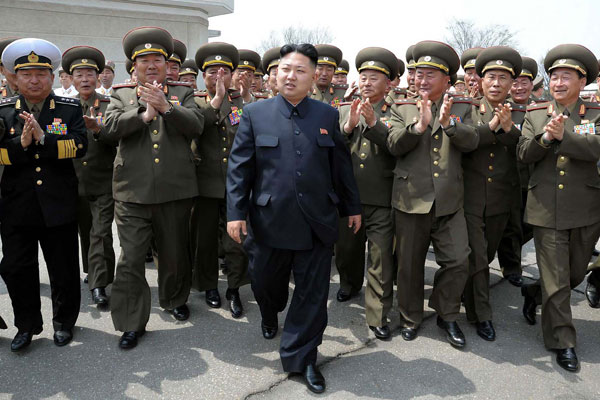“I’m not predicting that [a North Korean] collapse is imminently going to occur, what I am trying to argue is that we need to be imminently preparing for such a thing,” said Bruce Bennett of the RAND Corporation at an event at The Heritage Foundation.
In his recently released report, Bennett laid out a series of potential scenarios for collapse of the North Korean regime and outlines several key action steps that the U.S. and the international community should be taking to prepare for a prospective collapse.
Bennett believes that there are a number of scenarios—including peaceful reunification with South Korea—that could lead to a collapse of the Kim regime. An assassination on Kim Jong-un is the most likely scenario—especially in light of an alleged assassination attempt earlier this year. The assassination of Kim Jong-un could lead to a situation where competing successors vie for the position of Supreme Leader.
Regardless of how the regime collapses, the primary arbiters in the aftermath remain in question. Will the Chinese intervene? Or would the U.S. and South Korea be the primary arbitrators of peace? Bennett felt that there was nothing preventing China from intervening. Bennett argues that collapse could turn into a potential “race for Pyongyang.”
While a North Korean collapse would free the people from a brutal regime, there would be several dire consequences to the regime’s demise. The people of North Korea could be faced with a humanitarian disaster, the potential loss of control of nuclear facilities, and difficulty in facilitating assimilation on the Korean peninsula. A strong legal and judicial system, improved infrastructure, and economic development are all critical to ensure security on the Korean peninsula post-collapse.
Suggested preparations for the collapse include establishing a blueprint for a realistic humanitarian aid program to ensure that aid is delivered directly to the people—not filling the private coffers of ex-government officials. Bennett argued that a successful plan for demobilizing the military required reintegration of members of the military into the civil service. He expressed that a failure to keep the military employed could result in insurgency or a weaponized revolt. He also noted that elimination of weapons of mass destruction is critical to the success of the reunification.
Without adequate preparation, a North Korean collapse could have a devastating impact on the stability of northeast Asia. Even in the case of a peaceful reunification with South Korea, North Korea will have to recover from over three decades of the Kim regime reign. Instability on the Korean peninsula, combined with a serious humanitarian disaster and the natural issue of assimilation, would make for a complicated reunification. The time to prepare is now.
